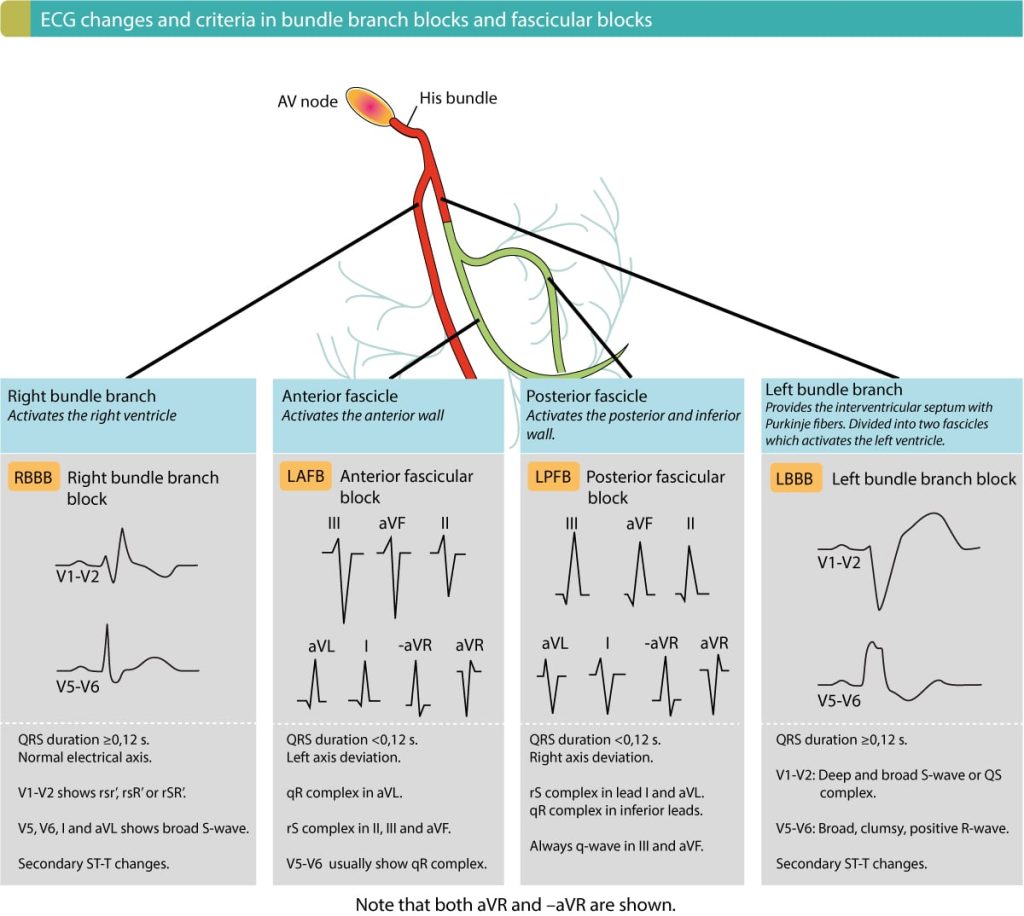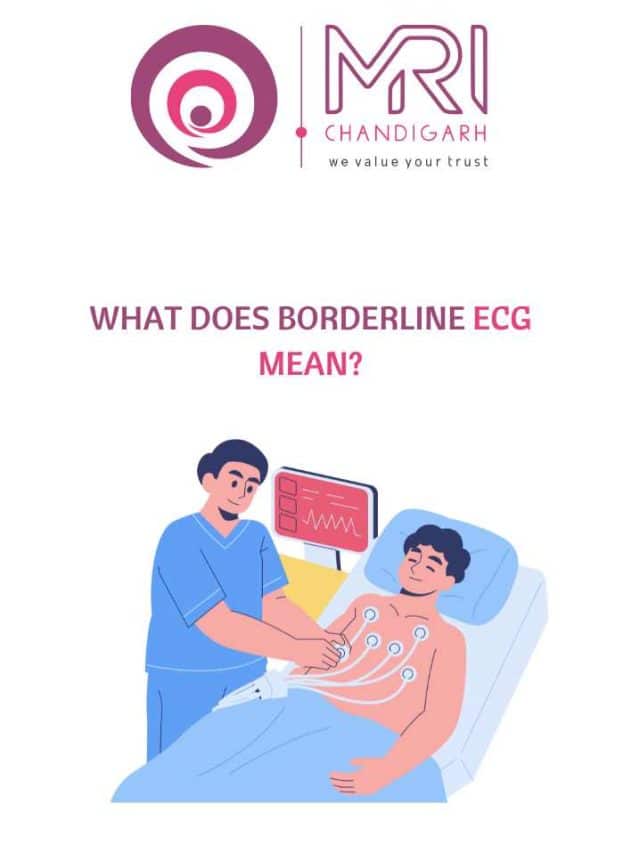Let’s talk about borderline ECG meaning because it’s one of those terms that can leave you scratching your head if you’re not in the medical field. Imagine this: you’ve just had an electrocardiogram (ECG), and your doctor mentions that the results are "borderline." Now, what does that even mean? Is it something serious? Should you panic? Relax, we’ve got your back. In this article, we’ll break down everything you need to know about borderline ECG results in a way that’s easy to understand, so you can make informed decisions about your health.
Before we dive deep, let’s clear the air. A borderline ECG doesn’t necessarily mean there’s a major heart issue. Think of it like a warning light on your car dashboard—it’s telling you something’s worth looking into, but it’s not necessarily a red alert. We’ll explore what it means, why it happens, and what steps you can take next. Sound good? Let’s get started.
This isn’t just another boring medical article. We’ll cover everything from the science behind ECGs to real-life scenarios and expert advice. By the end of this, you’ll be a borderline ECG pro, ready to tackle any questions or concerns you might have. So grab a coffee, sit back, and let’s decode the mystery of borderline ECG meaning together.
Read also:1985 Is The Year Of What Animal Discover The Zodiac Magic
What Exactly Is an ECG?
First things first, let’s talk about what an ECG actually is. An electrocardiogram, or ECG (sometimes called EKG), is a test that measures the electrical activity of your heart. It’s like a heart diary, recording every beat and rhythm to help doctors understand how your heart is functioning. The test is simple, painless, and usually takes just a few minutes. Electrodes are placed on your chest, arms, and legs to detect electrical signals as your heart beats.
Now, why do doctors use ECGs? Well, they’re super helpful for diagnosing heart conditions. They can spot irregularities in heart rhythm, detect signs of a heart attack, or even check for structural issues like an enlarged heart. So, when your doctor says your ECG results are borderline, it means there’s something unusual, but it’s not quite severe enough to be labeled as abnormal.
Breaking Down Borderline ECG Meaning
So, what exactly does a borderline ECG mean? Picture this: your ECG results fall into a gray area where they’re not completely normal, but they’re not entirely abnormal either. It’s like being stuck in traffic—things aren’t moving smoothly, but it’s not a total standstill. Borderline ECG results often indicate minor irregularities that might not cause immediate symptoms or concern.
These results could point to a variety of things, such as:
- Mild electrical abnormalities
- Early signs of heart conditions
- Non-specific changes that might be influenced by factors like stress or medications
It’s important to remember that a borderline ECG doesn’t automatically mean you have a heart problem. Sometimes, it’s just your heart’s way of saying, "Hey, maybe we should keep an eye on this."
Common Causes of Borderline ECG Results
Now that we know what a borderline ECG is, let’s explore some common causes behind these results. There are several factors that can contribute to borderline findings:
Read also:Why Is Haleyybaylee Famous The Ultimate Guide To Her Rise To Fame
1. Age and Lifestyle Factors
Age plays a big role in how your heart functions. As you grow older, your heart might show some wear and tear, which can lead to minor electrical changes picked up by an ECG. Lifestyle factors like stress, smoking, and lack of exercise can also influence your heart’s electrical activity.
2. Medications and Supplements
Some medications, like beta-blockers or anti-arrhythmics, can affect your heart’s rhythm and lead to borderline ECG results. Even certain supplements, like high doses of potassium or magnesium, can cause changes in your ECG.
3. Underlying Health Conditions
Conditions like high blood pressure, diabetes, or thyroid disorders can impact your heart’s electrical activity. These conditions might not cause major symptoms, but they can still show up as borderline findings on an ECG.
How Accurate Are Borderline ECG Results?
Accuracy is key when it comes to medical tests, right? So, how reliable are borderline ECG results? The truth is, ECGs are pretty good at detecting heart issues, but they’re not perfect. Borderline results can sometimes be influenced by external factors like poor electrode placement, movement during the test, or even caffeine consumption before the procedure.
That’s why doctors often recommend follow-up tests or additional monitoring to confirm any findings. It’s like getting a second opinion—just to make sure everything checks out.
What Happens After a Borderline ECG?
So, you’ve received a borderline ECG result. Now what? Your doctor will likely take a few steps to gather more information:
- Repeat the ECG to see if the results are consistent
- Order additional tests, like an echocardiogram or stress test
- Review your medical history and lifestyle factors
- Monitor your symptoms over time
Remember, a borderline ECG is just the beginning of the diagnostic process. It’s not a final verdict, so don’t stress too much. Your doctor will guide you through the next steps and help you understand what the results mean for your health.
Understanding the Science Behind ECGs
Let’s get a little nerdy for a moment and talk about the science behind ECGs. Your heart generates electrical signals that control its rhythm and contractions. An ECG measures these signals and translates them into waves that doctors can analyze. There are three main components of an ECG:
1. P Wave
This wave represents the electrical activity of the atria, the upper chambers of your heart. It’s like the starter signal for your heartbeat.
2. QRS Complex
This part shows the electrical activity of the ventricles, the lower chambers of your heart. It’s the big event where your heart actually contracts and pumps blood.
3. T Wave
This wave represents the heart’s recovery phase, where it resets and prepares for the next beat. It’s like taking a deep breath before diving back in.
When doctors see borderline ECG results, it often means there’s a slight irregularity in one or more of these components. But don’t worry—these irregularities are usually minor and don’t always indicate a serious problem.
Real-Life Scenarios: Borderline ECG in Action
Let’s look at a couple of real-life scenarios to help you understand how borderline ECGs play out in the real world:
Scenario 1: The Stress Factor
John, a 45-year-old accountant, had a routine ECG as part of his annual check-up. The results came back borderline, showing mild electrical changes. His doctor asked about his lifestyle and discovered that John had been under a lot of stress lately due to a busy work schedule. After making some lifestyle adjustments and repeating the ECG a few months later, the results were completely normal.
Scenario 2: The Medication Mystery
Sarah, a 55-year-old woman, had a borderline ECG during a pre-op assessment for knee surgery. Her doctor noticed that she was taking a beta-blocker for high blood pressure, which could have influenced the results. After stopping the medication for a short period, Sarah’s ECG returned to normal.
These examples show how external factors can impact ECG results and why it’s important to consider the whole picture when interpreting borderline findings.
Expert Advice: What Doctors Want You to Know
We reached out to a few cardiologists to get their take on borderline ECGs. Here’s what they had to say:
- "Borderline ECG results are common and often nothing to worry about. It’s just a way for us to keep an eye on things."
- "Don’t panic if your ECG is borderline. We’ll do further testing to make sure everything’s okay."
- "Lifestyle changes can make a big difference in improving borderline ECG results. Eating healthy, exercising, and managing stress can go a long way."
These experts emphasize that borderline ECGs are just one piece of the puzzle. They’re a tool to help doctors gather more information and make informed decisions about your health.
Tips for Managing Borderline ECG Results
If you’ve received a borderline ECG result, here are a few tips to help you manage the situation:
- Stay calm and don’t jump to conclusions
- Follow up with your doctor for further testing if needed
- Review your medications and lifestyle habits with your healthcare provider
- Make healthy lifestyle changes to support your heart health
Remember, you’re not alone. Millions of people receive borderline ECG results every year, and most of them turn out to be nothing serious. Trust the process and work closely with your doctor to ensure everything’s on track.
Conclusion: Embrace the Gray Area
In conclusion, a borderline ECG doesn’t have to be scary or overwhelming. It’s simply a signal that there’s something worth exploring further. By understanding what borderline ECG meaning entails, you’re already ahead of the game. Follow up with your doctor, make healthy lifestyle choices, and don’t hesitate to ask questions. Your heart health is important, and taking an active role in managing it is the best thing you can do.
So, what’s next? Share this article with someone who might find it helpful, leave a comment with your thoughts, or check out some of our other articles on heart health. Together, we can navigate the world of borderline ECGs and keep our hearts happy and healthy.
Table of Contents
- What Exactly Is an ECG?
- Breaking Down Borderline ECG Meaning
- Common Causes of Borderline ECG Results
- How Accurate Are Borderline ECG Results?
- What Happens After a Borderline ECG?
- Understanding the Science Behind ECGs
- Real-Life Scenarios: Borderline ECG in Action
- Expert Advice: What Doctors Want You to Know
- Tips for Managing Borderline ECG Results
- Conclusion: Embrace the Gray Area


